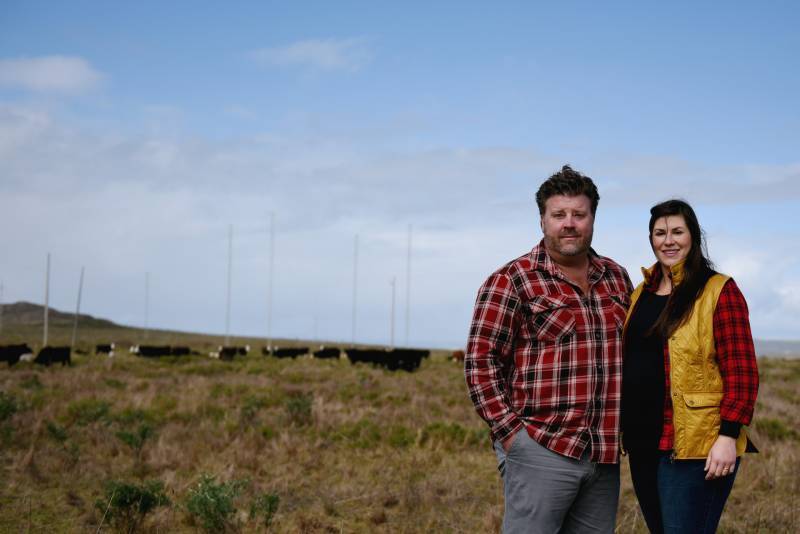Marin County ranchers pride themselves on raising their animals from farm to fork. But some say that might get a little harder now with Marin Sun Farms shutting its slaughterhouse to private label producers starting Jan. 1.
The Petaluma slaughterhouse — the only federally approved facility in the Bay Area — has allowed ranchers to grow and sell their meat locally, rather than having to send their animals hours away to be slaughtered and then shipped back to the region. Access to the facility has kept quality high and the carbon footprint low.
That’s partially why it was a hard decision, said Claire Herminjard, co-executive officer of Marin Sun Farms, which processes large animals like cattle, hogs, lambs and goats. A key reason for the change: Several managers experienced in handling compliance with federal meat inspection law and managing livestock for slaughter have left Marin Sun Farms over the last 18 months to pursue other work in a tight job market. That made it harder for Marin Sun Farms to keep the local business running for private ranchers.
“We kept private label services open as a community service because we cared deeply about the local foodshed. We always have,” said Herminjard, who runs the business with her husband, David Evans. “We do not have the resources to manage this program at the time.”
Marin Sun Farms took over the slaughterhouse in 2014 after the previous owner, Rancho Feeding Corp., was forced to recall 8.7 million pounds of diseased beef and shut down. It was the sole beef and hog slaughterhouse in the Bay Area for smaller ranchers who didn’t own their own federally regulated facilities. Marin Sun Farms stepping in with a few other investors was considered a lifeline for local farms.

